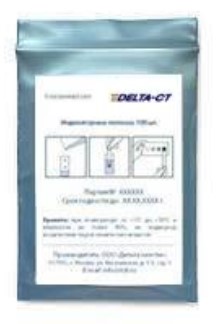The US Treasury described the behavior of Russian oligarchs before February 24

During the outbreak of hostilities in Ukraine, major Russian businessmen and officials began to make "suspicious transactions" that allegedly indicated attempts to evade sanctions, US authorities say US Treasury buildingUS Treasury buildingUS Treasury Building
The US Treasury Financial Crime Enforcement Agency FinCen published a report on cross-border financial transactions committed by major Russian businessmen and officials during and shortly before the outbreak of hostilities in Ukraine. As follows from the report, between January and April, the volume of transfers increased, and a number of large owners began to restructure their assets, transferring them to their children and relatives.
FinCen estimates the volume of "suspicious" transfers at tens of billions of dollars. Many of them were not illegal, but FinCen considers them "suspicious" for the reason that "in most cases, the sources of funds in Russia are unknown and may be associated with corruption."
For example, one person on the watch list significantly increased his Swiss credit card spending from December to February 2022. Presumably, the funds were spent on the purchase of luxury items and works of art. FinCen notes that these transactions were made even before the outbreak of hostilities and the massive imposition of sanctions. Some big businessmen began sending large transfers to their children living abroad, including students in the United States, during the outbreak of hostilities. The money was spent on the purchase of real estate and luxury goods. Another child of a businessman living in the US received a $1 million transfer in February. A number of big businessmen have begun transferring their assets to business partners and family members through shell companies. For example, in early April 2022, a major Russian businessman transferred assets to his ex-wife, who lives in the United States. In March and April 2022, another entrepreneur transferred beneficial ownership of several trusts and businesses to his children.
FinCen does not name the persons whose activities were tracked.
Welt learned about the flights of the "oligarchs" from Russia, bypassing the sanctions Politics
Hostilities in Ukraine began on February 24, but tensions over Ukraine and divisions between Russia and the West began to escalate months earlier. Information that Moscow was planning military operations in Ukraine began to appear in the Western media in October 2021, and in December 2021, the US authorities recommended that US citizens refuse to travel to Ukraine.
The United States imposed anti-Russian sanctions due to the start of a military operation in Ukraine in several rounds. Restrictions were imposed on companies from the banking sector, sectoral sanctions were introduced, and export restrictions were significantly expanded. Separately, Washington imposed personal sanctions. They included the founder of USM Holdings Alisher Usmanov, the head of Rostec Sergey Chemezov, the head of VEB.RF Igor Shuvalov, the head of Transneft Nikolai Tokarev, the presidential press secretary Dmitry Peskov, as well as members of their families, including wives and children. In addition, President Vladimir Putin , Defense Minister Sergei Shoigu, Foreign Minister Sergei Lavrov, Chief of the General Staff Valery Gerasimov and other high-ranking politicians, officials and the military were under sanctions.
Read on RBC Pro Tesla shares collapsed by 64%. What is happening and what does it have to do with Twitter The Chinese authorities will buy a "golden stake" in bigtech. Why it's good for stocks Work less, it's profitable:
The Guardian learned about the transfer of billions of Roman Abramovich to his children Politics
After the imposition of sanctions, some businessmen openly announced the restructuring of assets. So, on September 15, Vladimir Potanin's Interros announced the transfer to a charitable foundation of up to 50% of the shares of Rosbank, controlled by the holding. The businessman, ranked second in Forbes' 2022 Russian billionaires list with a net worth of $17.3 billion, said that this would ensure the financial stability and long-term nature of the foundation's charitable programs. Potanin, in an interview with RBC, noted that this was done, among other things, to protect the credit institution from sanctions risks. “Of course, there is also such a motive. A change in the shareholder structure in Rosbank will make it easier for the bank to interact with external partners,” Potanin said in response to a question about whether this scheme is associated with a reduction in sanctions risks. In spite of this,
Kremlin spokesman Dmitry Peskov, commenting on the sanctions imposed against businessmen, compared them to "robbery in the Wild West." He stated that the persons involved in the sanctions lists earned their money in an honest way and it is impossible to call them oligarchs.




























































